With the advancement of modern aesthetic technology, open rhinoplasty has become a popular choice for those seeking dramatic and precise nasal enhancements while maintaining a high level of safety. In this article, we’ll guide you through the fundamentals of open rhinoplasty, from its definition and key advantages to the standard surgical process and essential post-operative care tips. Join Rhinoplasty Experience to explore this procedure in depth so you can make the most informed and confident decision before undergoing surgery.
What is an open rhinoplasty?
Open rhinoplasty is a procedure that allows direct access to the internal structure of the nose through a small incision made at the columella, the strip of tissue between the nostrils. This incision connects with cuts inside each nostril, enabling the surgeon to lift the nasal skin, expose the underlying cartilage and bone, and perform precise adjustments to areas such as the nasal tip, septum, or bridge.
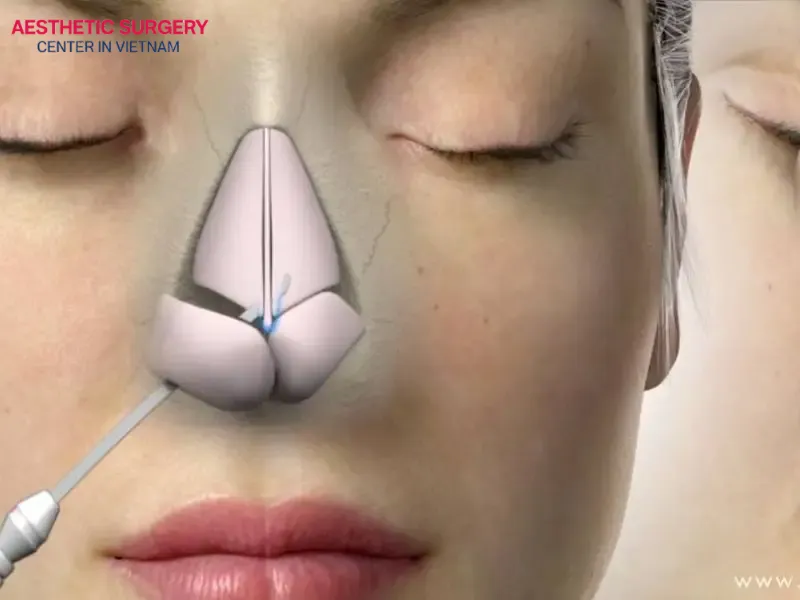
During the procedure, the surgeon may use synthetic implants, autologous cartilage (such as ear or rib cartilage), or a combination of both to reconstruct the nose and create a shape that is well-proportioned to the rest of the face. Many patients opt for rib cartilage rhinoplasty due to its high biocompatibility, lower risk of rejection, and more natural-looking, long-lasting results.
Because it offers exceptional visibility and control, open rhinoplasty is particularly suited for complex cases, such as severely deviated noses, revision surgeries, or full structural reconstruction. It is highly valued for its precision and superior aesthetic outcomes that stand the test of time.
What are the advantages of open nose surgery?
Open rhinoplasty is a procedure highly regarded by aesthetic professionals for its ability to deliver precise, long-lasting, and natural-looking results. Let’s explore the standout advantages that make this procedure a top choice for individuals seeking a balanced and harmonious nasal profile.
Enhanced surgical visibility for the surgeon
Unlike closed rhinoplasty, the open procedure provides full access to the internal nasal structure, including the septum, nasal tip cartilage, and connective tissues. Through a small incision at the columella, the surgeon can directly evaluate any asymmetry, deformities, or previous surgical damage. This level of visibility is especially critical for complex cases or revision rhinoplasty.
High precision in nasal reshaping
With the nasal anatomy fully exposed, the surgeon can make highly accurate adjustments, from implant placement to fine-tuning nasal bridge height, tip rotation, and nasal angles. This leads to well-balanced results that are both symmetrical and customized to each patient’s facial proportions, while also minimizing post-op complications.
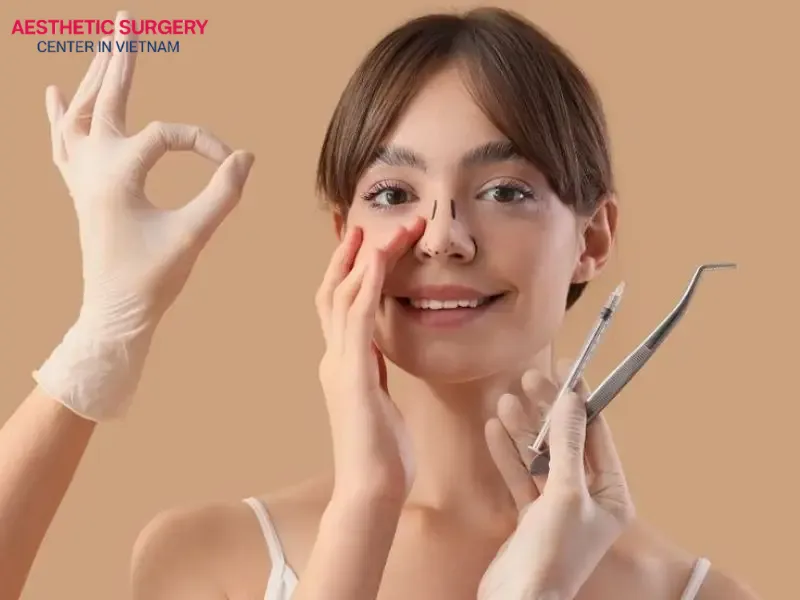
Considering the complexity of the procedure? Find out how it influences your overall rhinoplasty cost in our detailed analysis.
Supports advanced cartilage grafting techniques
One of the outstanding advantages of open rhinoplasty is the ability to effectively apply advanced cartilage grafting techniques. With this method, the surgeon can easily secure the cartilage in the correct position to naturally improve the height of the nose, ensure long-term structural stability, and minimize the risks of implant displacement, skin redness, or nasal tip contraction later on.
Suitable for complex cases and revision surgery
With the ability to fully control the internal nasal structure, open rhinoplasty is an ideal choice for cases involving a deviated nasal axis, bulbous tip, weak cartilage, or failed previous surgeries. This procedure allows the surgeon to perform complex adjustments that closed rhinoplasty may not be able to address effectively.
Stable and long-lasting results
Due to its precision and advanced technique, open rhinoplasty delivers clear and long-lasting aesthetic results. When performed by a highly qualified surgeon and combined with proper post-operative care, the shape of the nose can remain stable for many years, or even be permanent.
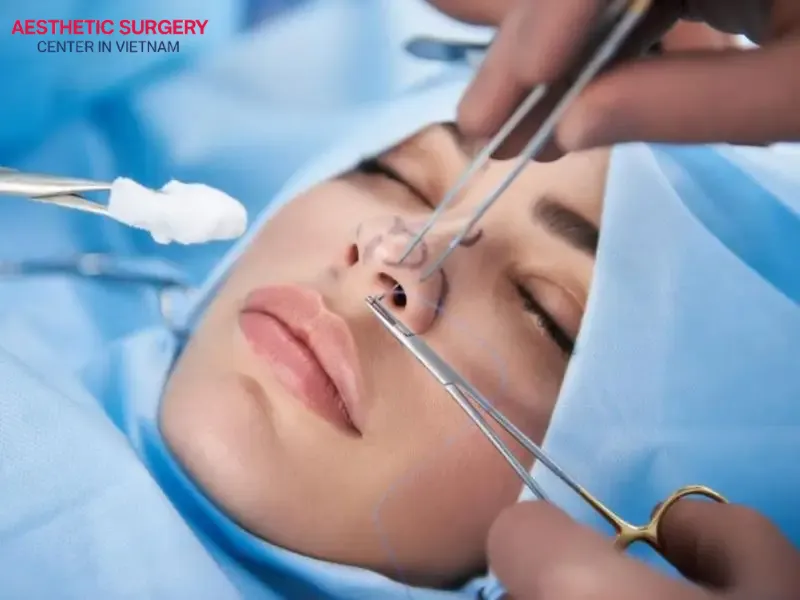
Standard open rhinoplasty procedure
The open rhinoplasty procedure requires absolute precision and, therefore, must be performed by highly qualified surgeons with a proven track record of successful surgeries. Refer to the steps in the open rhinoplasty procedure as performed by a specialized surgeon:
Incision and skin elevation
The first step in open rhinoplasty is making a small incision along the columella (the tissue between the nostrils). Two additional incisions inside the nasal cavity allow the surgeon to access the entire underlying bone and cartilage structure.
Precisely separating the soft tissue from the bone and cartilage ensures that the following reshaping steps can be performed safely, minimizing damage to surrounding tissues and reducing the risk of bleeding during surgery.
Nasal restructuring and shaping
At this step, the surgeon will adjust the nasal structure based on both aesthetic and functional requirements. The procedure may include:
- Removing excess bone or cartilage in cases of dorsal hump, deviation, or irregular nasal contour.
- Grafting autologous or synthetic cartilage to augment the nasal bridge, define the tip, or reinforce the septum.
- Refining the nasal tip by trimming, reshaping, or suturing the cartilage to achieve a natural height and projection.
Thanks to the wide surgical view and direct access, the surgeon can control the entire reshaping process with high precision, ensuring that the final result is balanced and harmonious with the patient’s facial features.
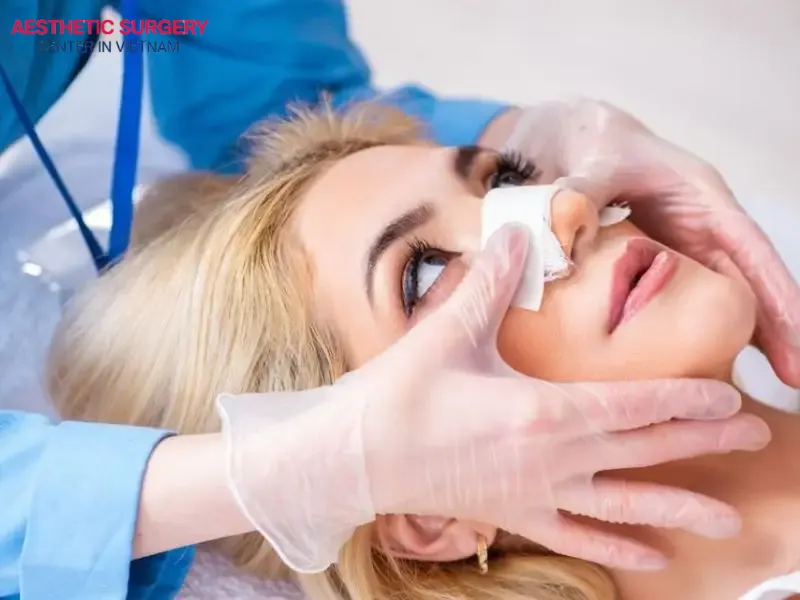
Wound closure and nasal stabilization
After completing the reshaping process, the surgeon will close the incisions using fine aesthetic sutures. Depending on the case, either absorbable or non-absorbable stitches may be used to ensure optimal wound healing.
At the same time, the nose will be stabilized using a specialized flexible plastic splint, along with medical adhesive tape, to maintain structural alignment during the initial recovery period, helping prevent shifting and supporting the nose in forming the desired shape.
What is the difference between open & closed rhinoplasty?
When researching current rhinoplasty procedures, many people are confused between open rhinoplasty and closed rhinoplasty. Each procedure has its own advantages and disadvantages and is suitable for different types of patients.
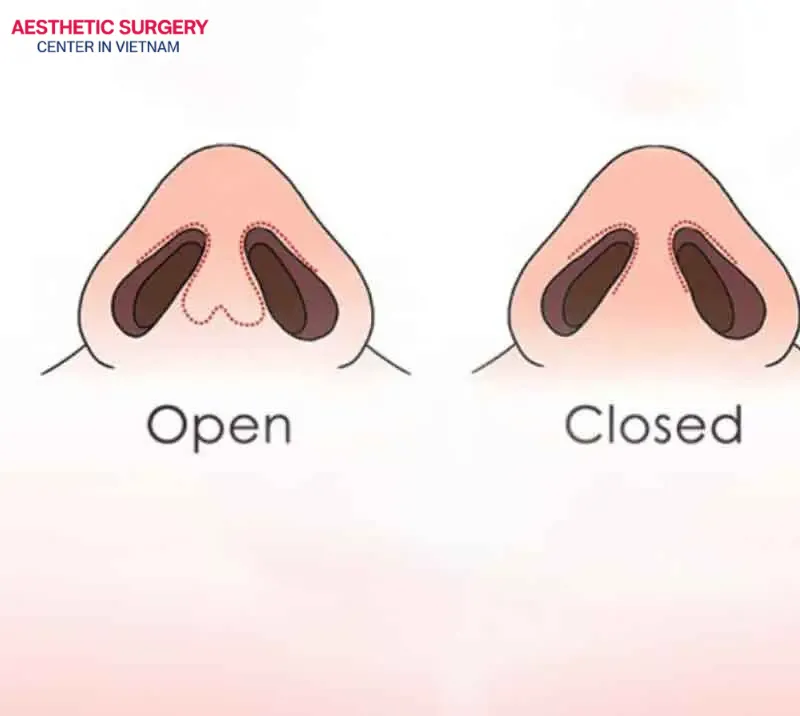
Let’s take a closer look at the key differences in the comparison table below:
|
Open rhinoplasty |
||
| Invasiveness | Minimally invasive procedure with all incisions made inside the nostrils | More invasive; involves a small external incision at the columella for full structural visibility. |
| Recovery time | Faster recovery; the initial Rhinoplasty swelling stages, along with bleeding and bruising, are typically mild. | Longer recovery period; more downtime is needed for healing. |
| Ability to correct flaws | Suitable for minor adjustments; best for noses with an already balanced structure. | Can address complex issues such as bulbous tip, deviated septum, wide nostrils, or failed prior surgery. |
| Ideal candidates | Best for those with relatively good nasal structure who seek subtle improvements. | Often recommended for patients with nasal trauma, congenital deformities, or unsatisfactory previous results. |
| Procedure duration | Typically takes 30–45 minutes. | Takes longer, about 45–60 minutes, due to more detailed internal work. |
Comparison table: Key differences between open and closed rhinoplasty
How much does an open rhinoplasty cost?
The cost of open rhinoplasty is one of the main concerns for many clients considering nasal enhancement. In reality, the price of this procedure can range from VND 30,000,000 to over VND 100,000,000, depending on several factors such as the surgical procedure used, the type of cartilage material, nasal condition, and the reputation of the clinic. Here are the key factors that influence the cost of open rhinoplasty that you should be aware of:
Type of cartilage used:
One of the key factors that determines the cost of open rhinoplasty is the type of cartilage material used during surgery. Currently, surgeons commonly use:
- Autologous cartilage, such as ear or rib cartilage. Rib cartilage, in particular, is more expensive due to the complex harvesting process, high biocompatibility, and its ability to deliver natural, long-lasting results.
- High-grade synthetic implants, such as Surgiform or Nanoform, offer excellent shape retention, durability, and low complication rates. These premium materials also come with a higher cost compared to standard silicone implants.
Complexity of the surgical procedure:
For cases involving significant nasal defects, such as a deviated bridge, low nasal dorsum, or previous failed surgeries, the surgeon may need to apply structural or advanced rhinoplasty procedures. These require higher surgical skill and longer operating time, which in turn increases the overall cost of the procedure.
Reputation of the aesthetic clinic
At reputable cosmetic hospitals and clinics with experienced surgeons and modern equipment, the cost of open rhinoplasty is typically higher. However, this investment ensures a safe procedure, accurate techniques, and minimal risk of complications. On the other hand, choosing a lower-quality facility may reduce costs but significantly increase the risk of poor outcomes and post-operative issues.
Initial nasal condition
Not everyone has the same nasal structure. For individuals with previous nose surgeries, scar tissue, or congenital deformities, the procedure tends to be more complex. In such cases, the cost of open rhinoplasty is usually higher due to the need for comprehensive adjustments, possible use of additional grafting materials, and extended operating time.
If you’re considering open rhinoplasty, reviewing the price list is helpful, but more importantly, you should choose a qualified surgeon and a reputable clinic to ensure safety and long-term results. Always prioritize quality over cost.

Aesthetic Surgery Center – A trusted destination for open rhinoplasty in Vietnam
Choosing the right clinic for open rhinoplasty plays a decisive role in both surgical safety and the final aesthetic outcome. A licensed, specialized center with a team of highly skilled surgeons can minimize surgical risks and help you achieve your desired nose line.
In Vietnam, Aesthetic Surgery Center is one of the top-rated aesthetic clinics that meets all the essential criteria:
- Board-certified plastic surgeons with extensive experience in complex nasal reconstruction.
- Modern facilities with sterile operating rooms and internationally standardized surgical equipment.
- Personalized consultation and facial analysis to ensure your nose line is customized to harmonize with your facial features.
- Transparent pricing, clear contracts, and long-term post-surgery warranty policies.
- Positive feedback from real clients, with authentic and clearly documented before–and–after photos.
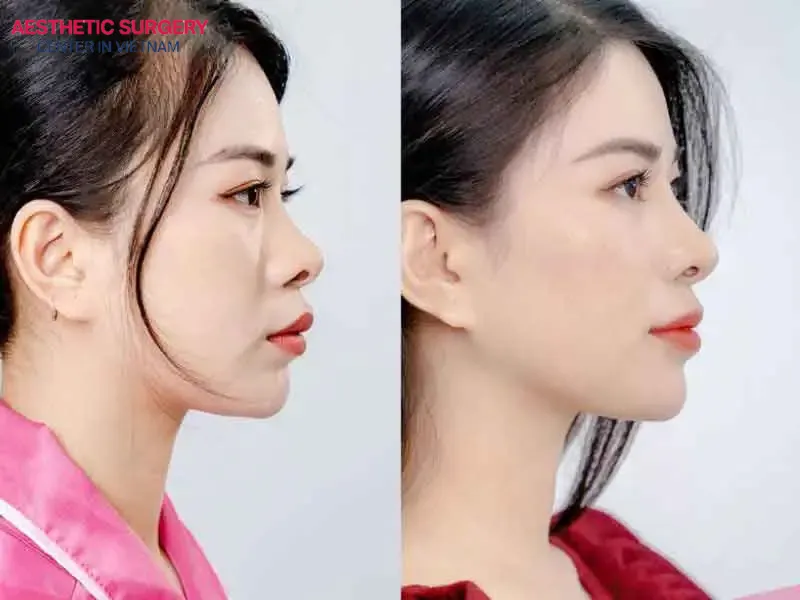
If you’re looking for a safe, effective, and long-lasting solution for your nose enhancement journey, Aesthetic Surgery Center is the ideal place to begin your transformation, professionally and sustainably.
Open rhinoplasty is the ideal solution for those who want comprehensive improvement of nasal structure and correction of complex defects. With high precision, deep structural access, and long-term aesthetic stability, this procedure is increasingly favored by individuals aiming to enhance both appearance and confidence. However, to achieve optimal results, the most important factor is choosing a reputable clinic with qualified surgeons and medically standardized procedures.
If you’re considering improving your nose, contact our hotline at 0911 582 499 – Aesthetic Surgery Center. We are ready to offer consultation, detailed solutions, and transparent pricing to help you elevate your look safely and effectively.







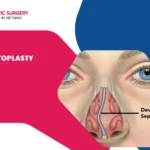



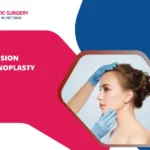
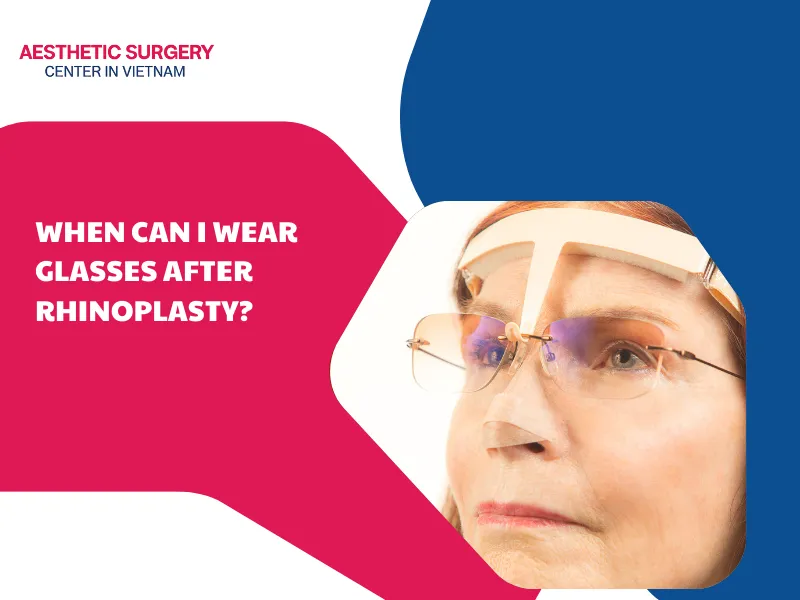

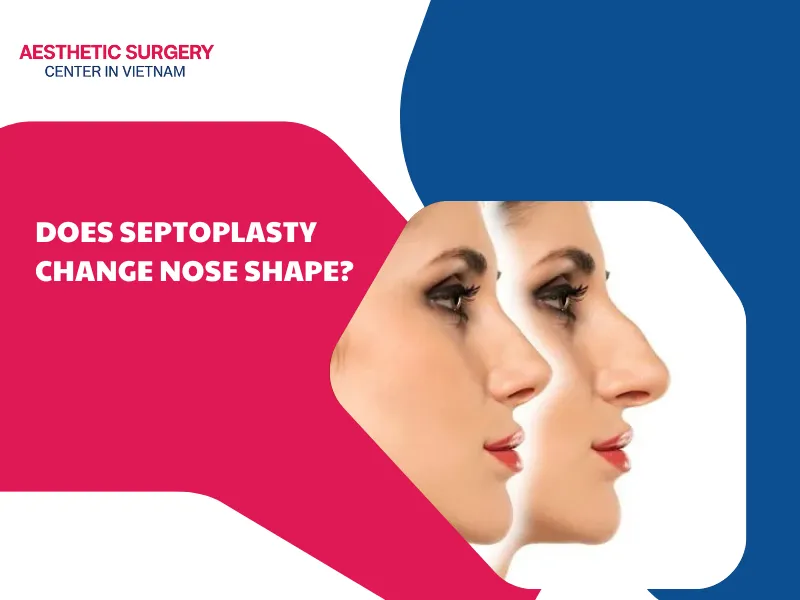
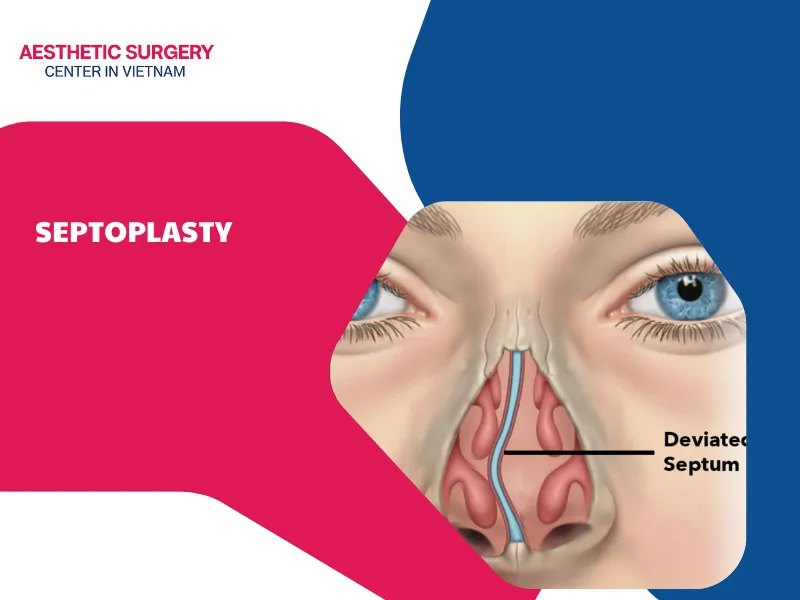
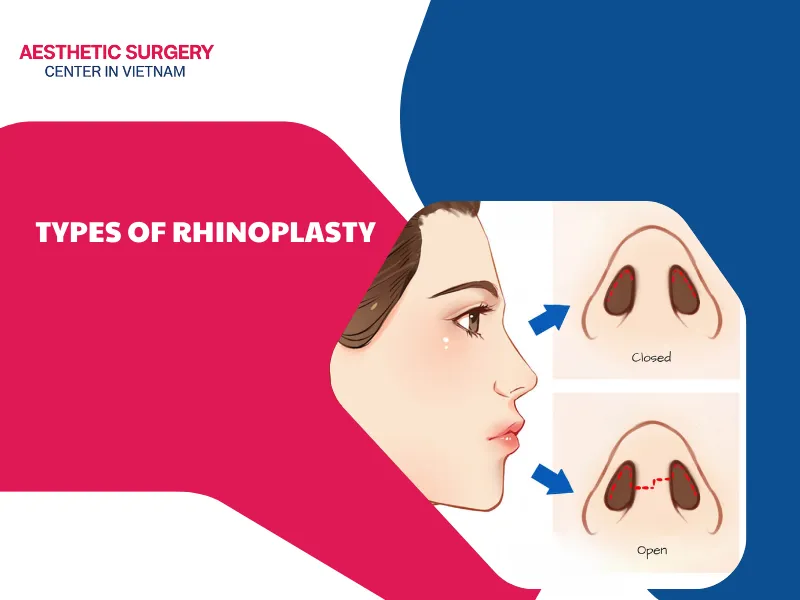













Comment on the post